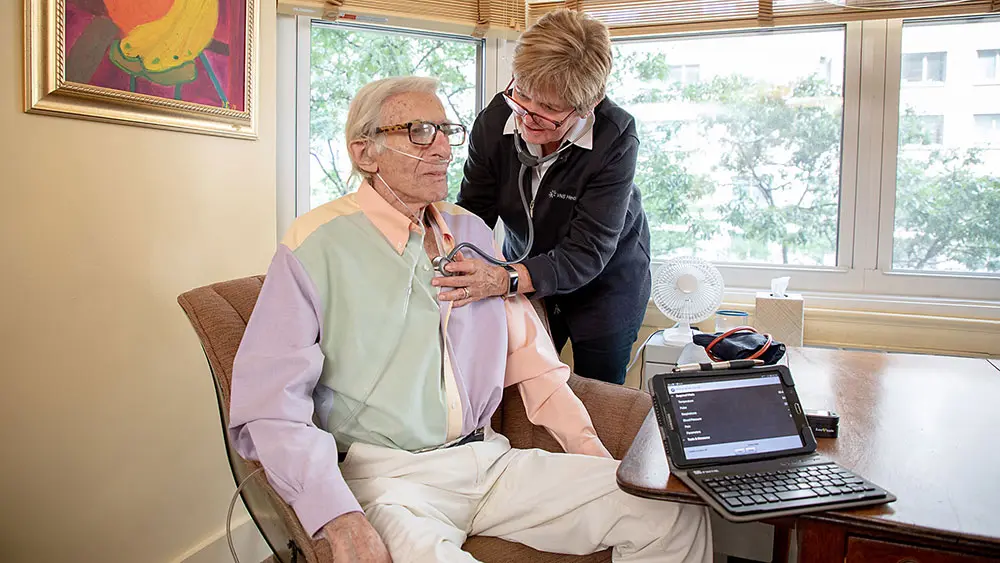
As you age or if you’re caring for an older loved one, you may find that staying healthy is getting harder. Good health might once have seemed like a given, but now it may require more effort to maintain.
But getting older doesn’t mean that you can’t focus on your health and make small changes that can help you feel your best.
Resources for Staying Healthy
How Can I Focus on My Health?
Living a healthy life can seem like a big task, but taking small steps every day makes it easier. By working healthy habits into your daily routine, you can protect your health for years to come. Here are some ways to focus on your health every day.
Food and water are key to your overall health — and the vitamins and nutrients you get from your food help your body do its job each day. Eating nutritious food can also lower your risk for various diseases, such as diabetes, heart disease, high blood pressure, and stroke. If you have trouble getting enough to eat — or preparing healthy meals for yourself — personal care services might be able to help.
How much sleep you need each night depends on your age. Adults between 18 and 60 years old need at least 7 hours of sleep a night. Adults who are between 61 and 64 need 7–9 hours of sleep, and adults over the age of 65 need 7–8 hours.
Getting movement into your routine is an important part of keeping up with your health throughout your life. Even adults over the age of 65 need:
- Moderate-intensity exercise (like brisk walking or biking): 150 minutes per week
- Muscle strengthening: 2 times a week
- Balancing activities: 3 times a week
A hundred and fifty minutes of exercise might sound like a lot, but you can break it into smaller chunks spread out over the week. For example, you could reach this goal by taking three 10-minute walks Monday through Friday! And activities like walking to and from the subway or taking a walk at lunch count toward your overall total.
If you are recovering from a recent injury, illness, or surgery, you may feel like physical activity isn’t something you can do right now — but rehabilitation therapy might be able to help. A VNS Health rehab therapist can help you or your loved one achieve your health goals, whether that’s improving your balance, buttoning your shirt, or walking to your mailbox.
As you age, various people on your health care team can help you be your best — and your healthiest — including doctors, nurses, and other providers. From getting to a follow-up appointment with a specialist to attending your yearly wellness exam with your primary care provider, keeping your appointments can help you stay on top of your health and take care of any issues as they come up.
Should I Get a Flu Shot?
Protecting your health may also include getting routine vaccinations, such as for the flu, shingles, and COVID-19.
Flu season tends to peak between October and February. Because your flu shot will take 2 weeks to begin protecting you, it’s best to get your shot earlier rather than later. However, it’s still worth getting it later in the season even if you didn’t get it in the fall.
Getting your flu vaccine can help to protect you and your loved ones from getting sick.
VNS Health Can Help You Stay Healthy
-
Health Care Escorts
Get help to travel safely to and from medical appointments.
-
Rehab Therapy
Get back to your normal routine with physical therapy, occupational therapy, or speech therapy.
